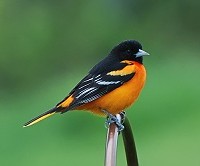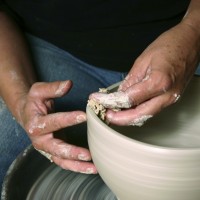There are few passages of Scripture that point out God’s vision for Community better than the story of the Good Samaritan.
On one occasion an expert in the law stood up to test Jesus. “Teacher,” he asked, “what must I do to inherit eternal life?” “What is written in the Law?” he replied. “How do you read it?” He answered: “‘Love the Lord your God with all your heart and with all your soul and with all your strength and with all your mind’; and, ‘Love your neighbor as yourself.'” “You have answered correctly,” Jesus replied. “Do this and you will live.” But he wanted to justify himself, so he asked Jesus, “And who is my neighbor?” In reply Jesus said: “A man was going down from Jerusalem to Jericho, when he fell into the hands of robbers. They stripped him of his clothes, beat him and went away, leaving him half dead. A priest happened to be going down the same road, and when he saw the man, he passed by on the other side. So too, a Levite, when he came to the place and saw him, passed by on the other side. But a Samaritan, as he traveled, came where the man was; and when he saw him, he took pity on him. He went to him and bandaged his wounds, pouring on oil and wine. Then he put the man on his own donkey, took him to an inn and took care of him. The next day he took out two silver coins and gave them to the innkeeper. ‘Look after him,’ he said, ‘and when I return, I will reimburse you for any extra expense you may have.’ “Which of these three do you think was a neighbor to the man who fell into the hands of robbers?” The expert in the law replied, “The one who had mercy on him.” Jesus told him, “Go and do likewise.” (Luke 10:25-37)
 Love the Lord your God…and your neighbor as yourself. Being in community and FOR one another may involve risking any of these:
Love the Lord your God…and your neighbor as yourself. Being in community and FOR one another may involve risking any of these:
- our being inconvenienced
- our involvement and concern costing us something
- our timetable being impacted
- our image being tainted
- our being viewed as meddling
- and our feeling overwhelmed by the needs of others.
How do we discern whether it’s my responsibility or someone else’s?
None of us should feel the need to be Messiah. All of us should be concerned to follow Him.
Jesus said “Go and do likewise.” For many of us, those are hard words.
If someone’s situation presents me with the opportunity to have mercy or pass by, it’s probably a good place to “Do likewise.”
How can I do that without being impolite or feeling like a meddler? Probably the simplest answer is to ask, “Is there a special way I can pray for you today?” If they would value the help, they’ll tell you by how they phrase their answer. If the answer is “No, everything’s fine,” then the opportunity isn’t ours.
We were Created to BE in Community and we are Created to BE FOR Community.
This is how we know what love is: Jesus Christ laid down his life for us. And we ought to lay down our lives for our brothers. If anyone has material possessions and sees his brother in need but has no pity on him, how can the love of God be in him? Dear children, let us not love with words or tongue but with actions and in truth.” (1 John 3:16-18)
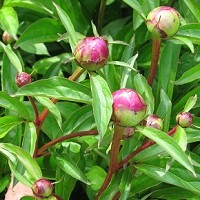 When I worked at Home Depot, I could guarantee this query at least a dozen times each weekend that the peonies were in bloom. Gardening has its share of pieces of Folk Wisdom and this isn’t one of them.
When I worked at Home Depot, I could guarantee this query at least a dozen times each weekend that the peonies were in bloom. Gardening has its share of pieces of Folk Wisdom and this isn’t one of them. 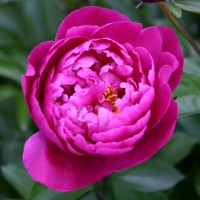 Peonies enjoy full to part sun, are heavy feeders, and come in singles and doubles as well a variety of colors. They can endure in the same location for decades and reward you with their beauty in the spring and their durable shrub-like foliage until the fall. They require some additional care with respect to planting depth and are best divided in the fall in order to bloom happily. They are some of the oldest cultivated plants for good reason—they are truly among the masterpieces of May.
Peonies enjoy full to part sun, are heavy feeders, and come in singles and doubles as well a variety of colors. They can endure in the same location for decades and reward you with their beauty in the spring and their durable shrub-like foliage until the fall. They require some additional care with respect to planting depth and are best divided in the fall in order to bloom happily. They are some of the oldest cultivated plants for good reason—they are truly among the masterpieces of May. This was brought home to me in a strange way. My husband and I have a dog named Harley—a smooth haired fox terrier. He attracts a lot of attention, particularly from children. Last evening, Harley was taking us for a walk when a little boy ran up and asked if he could pet our dog. The little boy smiled when I said “Yes” and then he looked at my face with the bandage from my surgery and asked, “What’s that?” I immediately thought of the medical answer and decided that wouldn’t be nearly as informative or age appropriate as the answer I gave him: “I had an owie on my face and so the doctor took it away.” The little boy said “Oh, that’s good.” While he was petting Harley, two little girls came running up to see Harley too, and one of them spoke for the pair and asked “What happened?” and they both pointed to their faces corresponding to where my bandage is. I gave them the same answer and they said, “Oh. OK.” After this episode, I talked with my husband about how I ran into a woman from church while I was at the store earlier and she also asked me “What happened?” I’m sure everyone I encountered was wondering about this prominent bandage, but only she—a friend—asked.
This was brought home to me in a strange way. My husband and I have a dog named Harley—a smooth haired fox terrier. He attracts a lot of attention, particularly from children. Last evening, Harley was taking us for a walk when a little boy ran up and asked if he could pet our dog. The little boy smiled when I said “Yes” and then he looked at my face with the bandage from my surgery and asked, “What’s that?” I immediately thought of the medical answer and decided that wouldn’t be nearly as informative or age appropriate as the answer I gave him: “I had an owie on my face and so the doctor took it away.” The little boy said “Oh, that’s good.” While he was petting Harley, two little girls came running up to see Harley too, and one of them spoke for the pair and asked “What happened?” and they both pointed to their faces corresponding to where my bandage is. I gave them the same answer and they said, “Oh. OK.” After this episode, I talked with my husband about how I ran into a woman from church while I was at the store earlier and she also asked me “What happened?” I’m sure everyone I encountered was wondering about this prominent bandage, but only she—a friend—asked. 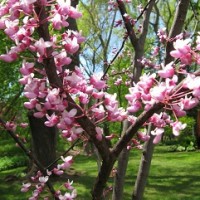
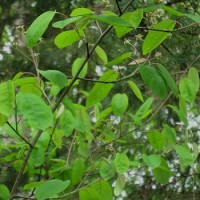
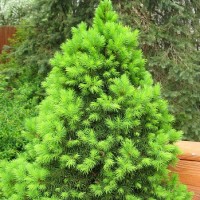
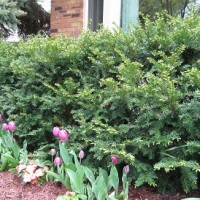
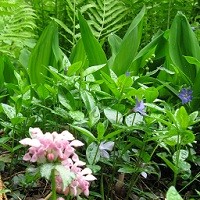
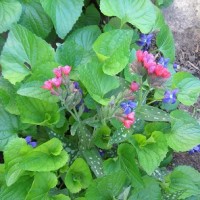
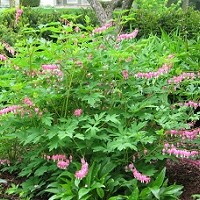
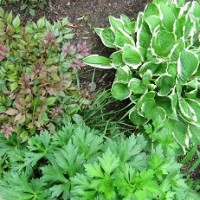
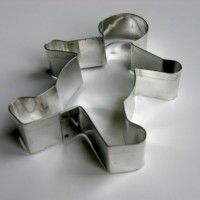 Isn’t it wonderful that when God set out to create human beings, that He made us each to be individuals? No cookie cutter, mass-produced, dime-a-dozen clones. Each one of us is handcrafted.
Isn’t it wonderful that when God set out to create human beings, that He made us each to be individuals? No cookie cutter, mass-produced, dime-a-dozen clones. Each one of us is handcrafted. I’ve been thinking about this a lot. As of this writing, I’m recovering from having a basal cell carcinoma lesion removed from my face. Once the pain and swelling go away, there will be a scar (hopefully it will not be too noticeable). But for Christians, these scars are our stigmata—the marks of life—as we pick up our cross and follow Christ on a journey of BE-ing in a fallen world.
I’ve been thinking about this a lot. As of this writing, I’m recovering from having a basal cell carcinoma lesion removed from my face. Once the pain and swelling go away, there will be a scar (hopefully it will not be too noticeable). But for Christians, these scars are our stigmata—the marks of life—as we pick up our cross and follow Christ on a journey of BE-ing in a fallen world. 
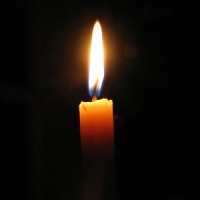 God’s reign and rule can be upon our hearts and spread upon the earth. We will see His holiness and grace in the giving of the Law and in writing the Law on our hearts. Our role as regents will involve Law-abiding and Law illuminating/ witnessing in contrast to a world of sin while this earth remains.
God’s reign and rule can be upon our hearts and spread upon the earth. We will see His holiness and grace in the giving of the Law and in writing the Law on our hearts. Our role as regents will involve Law-abiding and Law illuminating/ witnessing in contrast to a world of sin while this earth remains. 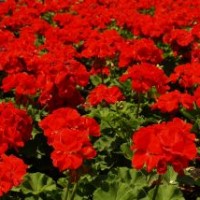
 Part of the joy of gardening is the beauty of wildlife drawn to a well planned garden. I love birds. When I was a child, I kept a bird-watching journal and enjoyed identifying birds and their habitats. A long time ago, I abandoned the written journal, but mentally, I have a record of birds in the yard and when their seasons are.
Part of the joy of gardening is the beauty of wildlife drawn to a well planned garden. I love birds. When I was a child, I kept a bird-watching journal and enjoyed identifying birds and their habitats. A long time ago, I abandoned the written journal, but mentally, I have a record of birds in the yard and when their seasons are.